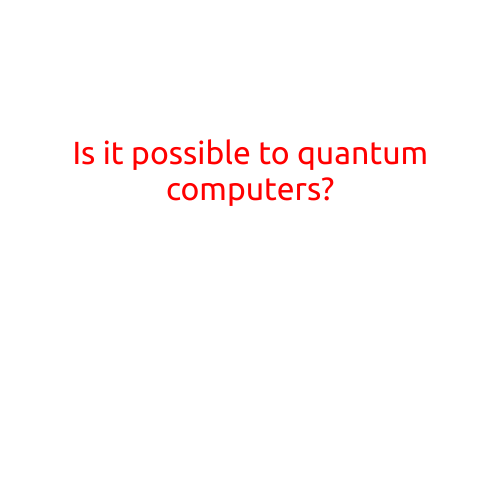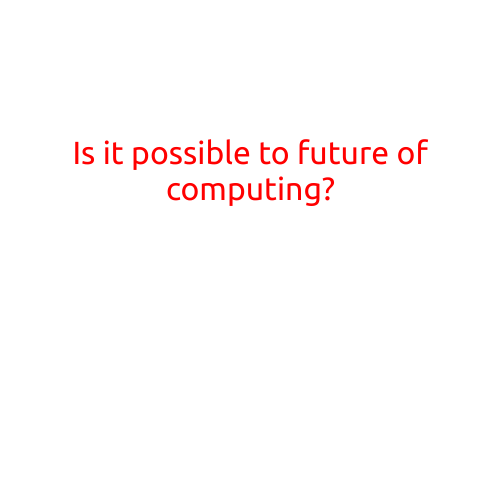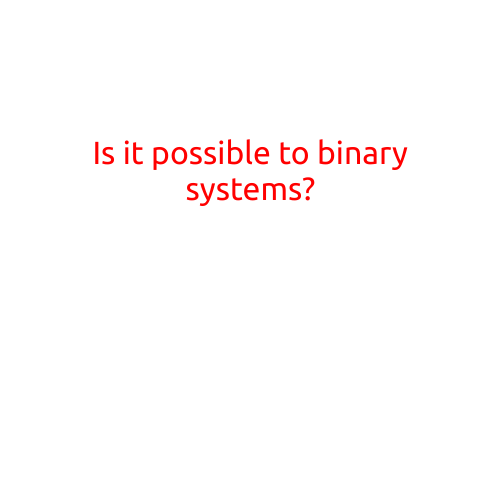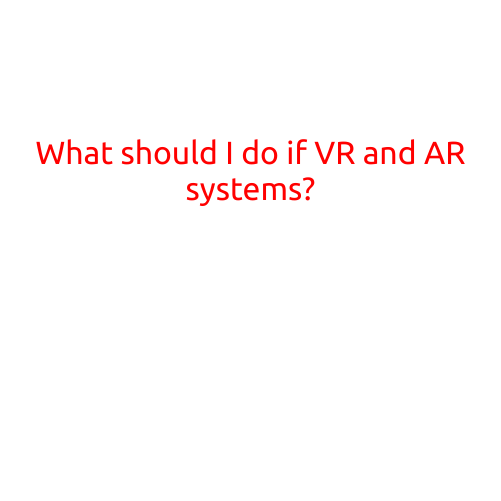
Is it Possible to Build Quantum Computers?
The concept of quantum computing has been around for several decades, with the first theoretical proposals dating back to the 1980s. Since then, significant advancements have been made in the field, with many experts believing that quantum computers will revolutionize the way we process information. But is it really possible to build such machines?
What is a Quantum Computer?
A quantum computer is a type of computer that uses the principles of quantum mechanics to perform calculations and operations. Unlike classical computers, which use bits to store and process information, quantum computers use quantum bits, or qubits, which can exist in multiple states at the same time. This property, known as superposition, allows qubits to perform calculations simultaneously, rather than sequentially.
Why is Quantum Computing Important?
Quantum computing has the potential to solve complex problems that are currently unsolvable with classical computers. This is because qubits can be entangled, meaning that their properties are connected in a way that allows them to affect each other, even when separated by large distances. This property, known as quantum entanglement, enables quantum computers to perform calculations that are exponentially faster than classical computers for certain types of problems.
One of the most significant applications of quantum computing is in the field of cryptography. Quantum computers can potentially break many encryption algorithms currently in use, but they can also be used to create unbreakable encryption methods.
Challenges to Building Quantum Computers
Despite the potential benefits of quantum computing, building a functional quantum computer is an extremely challenging task. There are several reasons why:
- Error Correction: Quantum computers are prone to errors due to the noisy nature of quantum systems. This means that quantum computers require sophisticated error correction techniques to maintain their accuracy.
- Scalability: Currently, most quantum computers are small-scale and can only perform a limited number of operations. Scaling up to thousands or millions of qubits is a significant technical challenge.
- Control and Measurement: Maintaining control over the quantum states of qubits and accurately measuring their properties is challenging.
- Material Science: The development of suitable materials for quantum computing hardware is an ongoing challenge.
Current State of Quantum Computing
Despite the challenges, significant progress has been made in recent years. Several companies, including IBM, Google, and Rigetti Computing, are actively developing quantum computers. For example, IBM has already developed a 53-qubit quantum computer and is working on a 117-qubit computer.
Conclusion
In conclusion, building a quantum computer is a complex and challenging task, but it is achievable. While many technical challenges remain to be overcome, the potential benefits of quantum computing are significant. As research and development continue, we can expect to see the creation of larger, more accurate, and more practical quantum computers.
Future Outlook
In the next few years, we can expect to see significant advancements in the field of quantum computing. It is likely that we will see the development of larger-scale quantum computers, as well as the creation of new applications and industries. As quantum computing becomes more widely available, it will have a significant impact on many fields, including cryptography, chemistry, and materials science.
References
- IBM Quantum Experience. (n.d.). Retrieved from https://quantum-computing.ibm.com/
- Google Quantum AI Lab. (n.d.). Retrieved from https://ai.googleblog.com/
- Rigetti Computing. (n.d.). Retrieved from https://www.rigetti.com/
Note: This is a sample article and not intended to be a definitive or exhaustive overview of the topic.





